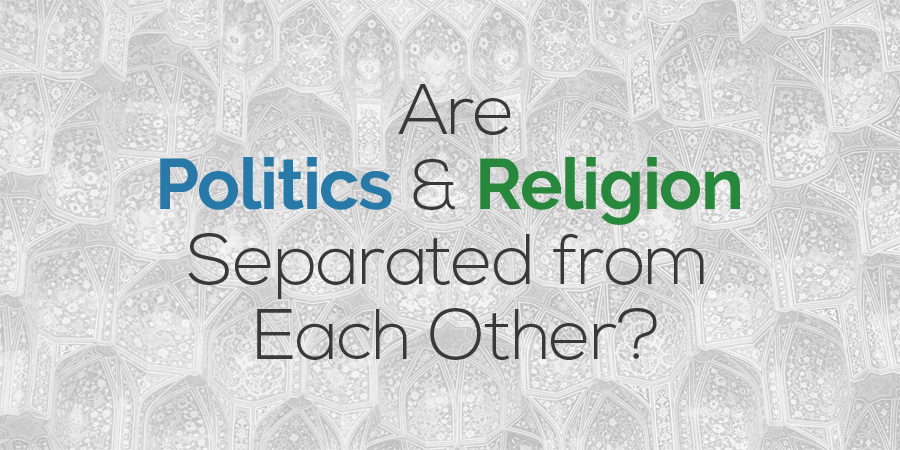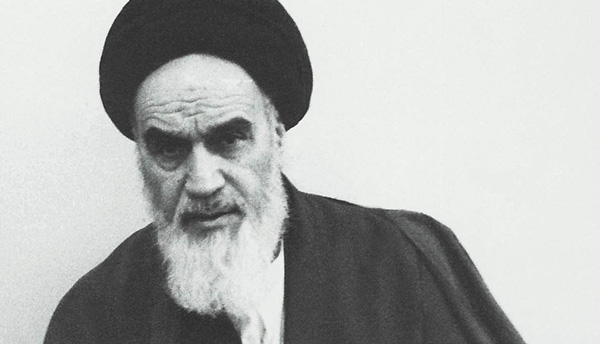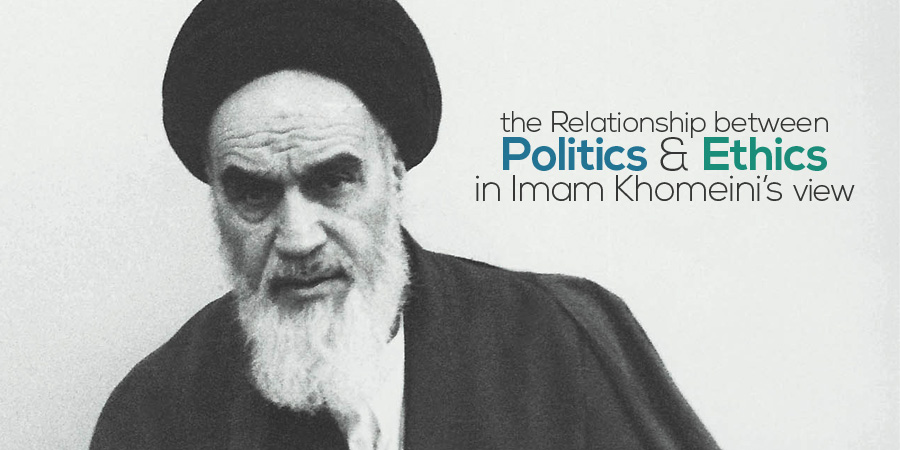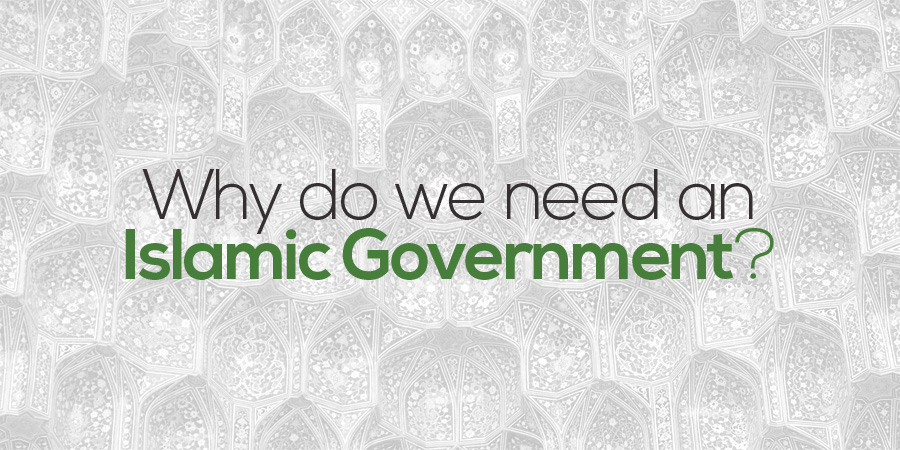Are Politics and Religion Separated from Each Other? (3)

Close-knit connection between this world and the hereafter
The fact of the matter is that our life is divided into this world and the hereafter. That is, we have a period of life which commences at our birth and ends at our death. Then, the second part of our life begins on entering purgatory [‘alam al-barzakh] and facing resurrection.1 This division of life does not necessarily mean that our actions and behavior in this world shall be divided into two and viewed from two perspectives. At any rate, we are in the world of action. Religion is revealed to guide our actions in the world, through a series of commandments and ordinances.
Thus, the religious commandments are not only for after death. It is not correct to say that a portion of our fifty or sixty year-long lives is related to the hereafter while another portion is related to this world. Rather, we have nothing in this world which is not related to the hereafter. All our actions in this world automatically assume an otherworldly form. That is, our actions here may be beneficial or harmful for us in the hereafter. Since our actions affect our otherworldly lives, the religious and Islamic view is that life in the hereafter is settled in this very world:
أَلْيَوْمَ عَمَلٌ وَ لاَ حِسَابَ وَ غداً حِسَابٌ وَ لاَ عَمَلَ.
“Today is the time for action and not for reckoning while tomorrow is the time for reckoning and not for action,”2
And
أَلدُّنْيَا مَزْرَعَةُ ٱلأَْخِرَةِ.
“This world is the sowing ground for the hereafter.”3
So, we will reap in the hereafter the fruit and product of whatever we sow in this world. It is not correct to say that our worldly life is alien to our otherworldly life; that a part of our actions are related to the life in this world while another part is related to the hereafter; and that we have two distinct spheres of life for this world and the hereafter. Instead, all our actions in this world such as breathing, blinking, walking, sitting, rising, looking, social intercourse, speaking, listening, eating, marital relationship, and government-people relationship can be such that ensure our felicity in the hereafter, or bring harm to us. It is true that the style of cooking and consumption of food are related to this world but the same act of eating can send us to paradise, or throw us into hellfire:
﴿إِنَّ الَّذِينَ يَأْكُلُونَ أَمْوَالَ الْيَتَامَى ظُلْمًا إِنَّمَا يَأْكُلُونَ فِي بُطُونِهِمْ نَارًا وَسَيَصْلَوْنَ سَعِيرًا﴾
“Indeed those who consume the property of orphans wrongfully only ingest fire into their bellies, and soon they will enter the Blaze.”4
Anyone who fills his stomach with the property of orphans eats food and enjoys doing so, but the food he eats will become chastisement of the hell for him. Similarly, if a person eats food for the sake of worshipping God, the same act of eating will have a spiritual reward. The same word that a person utters for the sake of pleasing God will be a tree growing in paradise for him. The Holy Prophet (s) said to his companions: “For anyone who recites tasbihat al-arba‘ah5 God gives him a tree that grows in paradise.” Some said: “So, we shall have many trees in paradise because we recite this dhikr [remembrance of God] frequently.” He said, “Yes, provided that you do not kindle fire to consume them.”
Thus, once our actions are done for the sake of pleasing God, they will bring about eternal felicity and rewards, and if they are done against the order of God, they will be the cause of perdition and chastisement in hell. It is not correct to say that our lives have two distinct divisions; one of which is related to the hereafter and is spent in the mosque, church, synagogue, and temple, while another part is related to this world and to ourselves and has nothing to do with the hereafter.
As we have said, this erroneous thinking was prevalent for the past centuries in the West among the followers of certain religions and occupied the minds of many in spite of the fact that neither Islam nor any other revealed religion ever endorsed such a notion. The contention of true religion is that man is created in order to secure his own felicity or perdition, and that his eternal felicity or perdition, as the case may be, lies in his behavior in this world. If his behavior is consistent with the command of God, he will attain eternal bliss, and, if otherwise, he will incur everlasting damnation.
The “minimalist” view on the question of expectation from religion is the result of a fallacy they committed. They imagined that expecting the maximum from religion meant they would have to seek all the information about everything from religion, including the style of cooking food and building a house, which information religion could not provide, so they said that they should not expect the maximum from religion. This is fallacious because the above issue does not have only two options. It has a third option which is the correct one, and that is, we do not expect that religion to say something about everything, including the manner of eating food, wearing clothes and building a house. No one has such a claim. However, since religion has left many issues to the realm of non-religious sciences, the same issues actually belong to the jurisdiction of religion. In this way, they acquire ideological value.
Ideological baptism of actions in this world
Once we consider the life in this world as linked to the life in the hereafter and believe that the totality of man’s actions and behavior plays a role in his perfection or downfall, it will acquire ideological value and we will give religion the right to judge each action. In simpler terms, religion informs us about the lawfulness or unlawfulness of our actions and not the manner of performing them.
Religion says that eating certain foods is unlawful [haram] and sinful. For example, eating pork and drinking wine are haram, but to say something about the manner of making wine and breeding pig is none of the business of religion. The reason behind religious permissions and prohibitions is their positive or negative effects in the otherworldly life of man, and it states the moral value of every action.
In other words, the path of man toward perfection begins from a point toward infinity. That which is useful for our perfection and provides the ground for the spiritual advancement of man is proportionate to the degree of wajib, mustahabb [recommended] or at least mubah [permissible] acts performed. The performance of haram and, to a lower degree, makruh [abominable] acts will keep him away from his true perfection and God. So, religion does not say what food to eat or how to cook it and how to build a house.
However, it says that you should not build a house on usurped land or you should not build a house in such a way that it overlooks the house of another and invades his privacy. It also says that you should build your house with halal income and not out of money earned through usury [riba’]. In reality, religion mentions the ideological manner of building a house. It also invites us to consume foods that are effective in our human and spiritual growth and avoid unlawful foods, alcoholic beverages, and narcotic drugs, which are unhealthy for us:
﴿يَا أَيُّهَا الَّذِينَ آمَنُواْ إِنَّمَا الْخَمْرُ وَالْمَيْسِرُ وَالأَنصَابُ وَالأَزْلاَمُ رِجْسٌ مِنْ عَمَلِ الشَّيْطَانِ فَاجْتَنِبُوهُ لَعَلَّكُمْ تُفْلِحُونَ ٭ إِنَّمَا يُرِيدُ الشَّيْطَانُ أَن يُوقِعَ بَيْنَكُمُ الْعَدَاوَةَ وَالْبَغْضَاء فِي الْخَمْرِ وَالْمَيْسِرِ وَيَصُدَّكُمْ عَن ذِكْرِ اللّهِ…﴾
“O you who have faith! Indeed wine, gambling, idols and the divining arrows are abominations of Satan’s doing, so avoid them, so that you may be felicitous. Indeed Satan seeks to cast enmity and hatred among you through wine and gambling, and to hinder you from the remembrance of Allah.”6
Hence, the permission and prohibition of religion is meant to expound the ideological value of all actions. To sum up apart from the worldly outcome of actions, religion also speaks about every action’s contribution to the doer’s admission to paradise or entrance to hell.
Radiant capability of intellect in discerning value of actions
The ideological value of action from the perspective of permissibility or prohibition is sometimes so clear and unambiguous that the human intellect can discern it well and there is no longer need for religion to state its ruling about it. In fact, the intellect alone can identify the decree of God. As such, concerning “rational independence” [mustaqillat al-‘aqliyyah], the fuqaha have said that in some cases the intellect can independently give a judgment and know the goodness [husn] or badness [qubh] of actions. Through the use of the intellect, we discern that the will of God is in the performance or abandonment of an act; we discern that God is pleased or displeased with a certain act.
Our intellect understands that taking out a slice of bread from the mouth of an orphan is an abhorrent act. In this regard, there is no need to state the religious ruling of law, though sometimes, in addition to the discernment of the intellect, the Qur’an and ahadith have also mentioned the religious rulings which actually confirm the judgment of the intellect. In most cases, nonetheless, the intellect does not possess the capability to understand that a certain action (depending on its being positive or negative, and how valuable) is obligatory [wajib], prohibited [haram], recommended [mustahabb], abominable [makruh], or permissible [mubah]. It is at this point that religion has to state the type and degree of impact of a certain act on our ultimate perfection.
Jurisdiction of Religion
Once we observe the commandments of religion, we will realize that the jurisdiction of religion is not restricted to personal matters. It rather deals with social issues such as those related to family, marriage, divorce, and commerce, and states the scope of halal and haram and their ideological values. By stating the ideological value of those things, religion actually explains their orientation—which form will lead toward God and which will incline toward Satan. This is something which science is incapable of dealing with.
Science mentions the amount and kind of elements needed to form different things and enumerates the physical and chemical properties, but it does not state how to use things in order to secure the real success of man. In this case, religion has to judge. Therefore, just as our personal action affects our felicity or wretchedness, our action in sociopolitical affairs has greater effect.
Meanwhile, in connection with the main axis of our discussion, which is social administration, can it be said that the mode of managing society has no relation with the ultimate success or failure of man and that the people in society are free to choose whatever form and method of administering their society, and religion has nothing to do with it? Who does not know that observance of justice in society gives success to man and that justice has a very strong positive value?
In this context, even if there is no pertinent Qur’anic verse or hadith, our intellect will discern that the observance of justice contributes toward the perfection, advancement and exaltation of man. When people do not regard their intellect as sufficient to discern ideological issues in these contexts, they have to resort to the Qur’an and the Sunnah. Of course, we believe that the intellect can understand many of the ideological issues in sociopolitical affairs. This does not mean, however, that whatever the intellect understands is outside the realm of religion.
We have mentioned earlier the “discoverer” of the will of God, which expresses the divine will and wisdom and conveys to us what is pleasing to God. It makes no difference how we discover this thing. What matters is that we discovered the divine legislative will.
Sometimes, this discovery is through the agency of the Qur’an and the Sunnah while, at other times, through the intellect, for these three are the proofs and discoverers of divine decrees and religious laws. As such, the intellect [‘aql] is considered as a source of divine law. The fuqaha regard the intellect as among the proofs in proving religious decrees and settling religious issues.
So, there is no demarcation between the intellect and religious law [shar‘]—some matters belong to the intellect while some others belong to religious law. Rather, the intellect is a light which, owing to its luminosity, can also discover the will and pleasure of God, and whatever can be discovered by the intellect in this regard is a religious matter.
Muhammad Taqi Misbah Yazdi Written by
Mansoor L. Limba Translated by
References:
- Of course, another part of life prior to the life in this world can also be considered and that is the life in the womb.
- Bihar al-Anwar, vol. 32, p. 354.
- Bihar al-Anwar, vol. 70, p. 225.
- Surah an-Nisa’ 4:10.
- Tasbihat al-arba‘ah: literally, the four tasbihs; it refers to the recital of “Subhan Allahi wa’l-hamdulillahi wa la ilaha illallahu Allahu akbar” [Glory be to Allah; praise be to Allah; there is no god but Allah; Allah is greater]. [Trans.]
- Surah al-Ma’idah 5:90-91.




